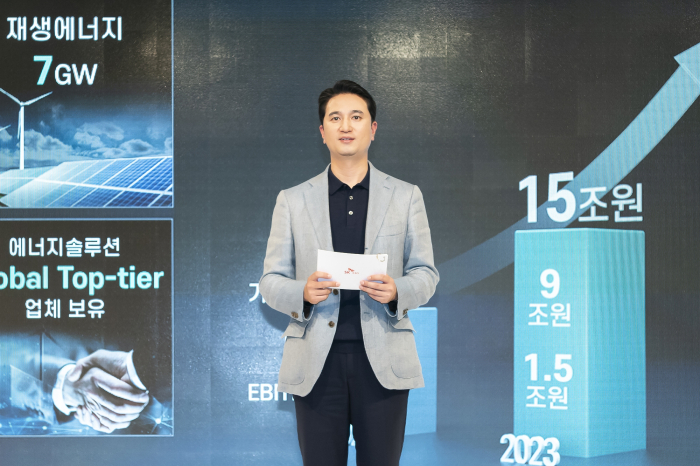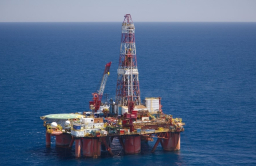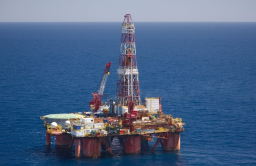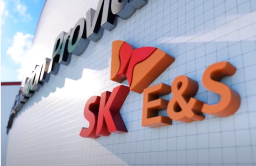-
KOSPI 2577.27 -2.21 -0.09%
-
KOSDAQ 722.52 -7.07 -0.97%
-
KOSPI200 341.49 +0.02 +0.01%
-
USD/KRW 1396 -2.00 0.14%
KKR named as preferred buyer of SK E&S' $2 bn new shares
M&As
KKR named as preferred buyer of SK E&S' $2 bn new shares
SK E&S raises fundraising volume by $300 mn as competition heats up among bidders
By
Oct 12, 2021 (Gmt+09:00)
2
Min read
News+

KKR & Co. has secured the exclusive negotiating rights to buy SK E&S Co.'s new preferred shares worth 2.4 trillion won ($2 billion), which the South Korean city gas supplier plans to spend in expanding its hydrogen business and shoring up the capital base, following a series of acquisitions.
The US private equity firm competed with three other shortlisted bidders -- IMM Private Equity, IMM Investment and New York-based EMP Belstar -- for the new shares, convertible into common shares in SK E&S, along with an option to invest in SK E&S' city gas subsidiaries.
As competition intensified for the new preferred shares, SK E&S has increased the amount of funding by 400 billion won ($333 million) to 2.4 trillion won.
KKR raised its chance of winning by securing South Korea's two leading banks -- Kookmin Bank's infrastructure financing division and Hana Bank -- as financing providers for the share deal.
SK E&S, 90% owned by its holding company SK Inc., is offering its liquefied natural gas (LNG) and city gas facilities as collateral of the new issues. It will redeem the shares with interest payments upon maturity, or have them converted into common shares.
Additionally, the preferred share buyer will be granted an option to invest in SK E&S' city gas subsidiaries five years after their share purchase. The option drew strong interest because of the long-term and stable cash flow of the city gas suppliers, alongside the industry's high entry barriers.
The company runs seven city gas subsidiaries across the country with a combined market share of 23%. Its city gas operations report around 140 billion won in operating profit annually and account for almost 60% of SK E&S's overall revenue.
BUSINESS RESHUFFLES, ACQUISITIONS
Another appealing factor for a $2 billion investment in SK E&S is the right to participate as a financial investor in SK E&S' business reshuffles to shift toward hydrogen and renewable energy.
KKR is open to three redemption options of the planned investment: getting back money with interest, receiving another form of securities, or converting the shares into ordinary shares, according to sources with knowledge of the matter.
Last year, KKR sold SK Nexilis Co., a copper foil maker formerly known as KCF Technologies Co., to SK Group, for 1.2 trillion won. Copper foils are used as a material for electric vehicle batteries.
SK E&S recently acquired Key Capture Energy LLC (KCE), a US operator of energy storage projects, for $600 million. Earlier this year, the company made a joint acquisition of a controlling stake in US hydrogen fuel cell maker Plug Power Inc., together with the group's holding firm SK Inc., for $1.5 billion.
The debt-to-equity ratio at SK E&S rose to 186% at the end of 2020, versus 152% the year previous on a consolidated basis, weighed by declining profits.
In a recent media session, the company unveiled its goal of lifting the enterprise value fivefold to 35 trillion won by 2025 from the current 7 trillion won, powered by four core businesses of hydrogen, renewable energy, energy solutions and low-carbon LNG.
Bank of America-Merrill Lynch and Credit Suisse are managing the share deal.
Write to Chae-yeon Kim at why29@hankyung.com
Yeonhee Kim edited this article.
More To Read
-
Oct 05, 2021 (Gmt+09:00)
-
Aug 13, 2021 (Gmt+09:00)
-
Feb 03, 2021 (Gmt+09:00)





